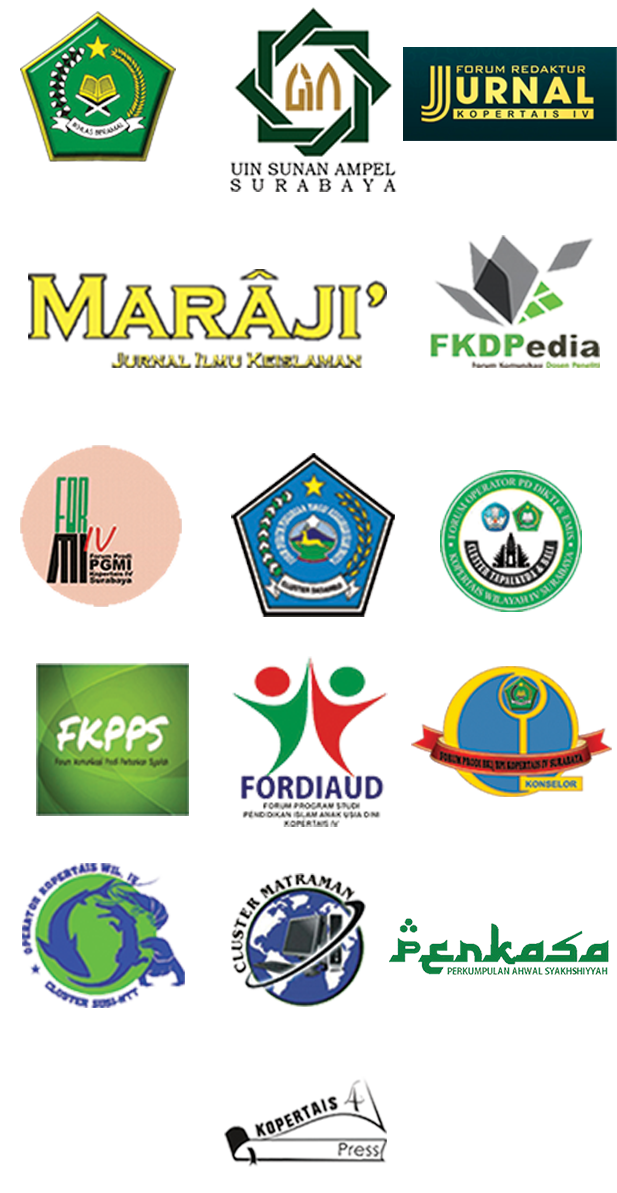Religious Moderation In Economic Sharia For Developing Welfare's People
Abstract
Excessive fanatical diversity is one of the problems in Indonesia if adherents of a religion that has it gives rise to radicalism, which often carries out violent movements such as: hate speech, attacks, kidnappings, suicide bombings, and so on. Extremist ideology (ghuluw) is not in accordance with the concept of Islam, because it eliminates harmony in religious togetherness so that it is difficult to create prosperity for the people, therefore it is necessary to have programs and activities carried out in the context of implementing and strengthening religious moderation as formulated in the five priority activities (KP) One of the technocratic RPJMN 2020-2024 is the development of economic and religious resources.This research is research aimed at analyzing religious moderation in the development of sharia economics as an effort to improve community welfare. This research is library research (library research), Data analysis techniques using the Milles and Huberman model include: (1) data reduction, (2) data display, and (3) conclusion drawing. Results Research Based on the discussion, it can be concluded that: Sharia economics is an economy that supports truth and justice and rejects all forms of economic behavior that are not good and evil, such as: usury, speculation, fraud, and uncertainty or lack of clarity (gharar). This is in line with the attitude of religious moderation which is a religious perspective, attitude and practice which is the embodiment of the essence of Islamic teachings where sharia economics has the characteristics of-characteristics of moderate Islam that differentiate sharia economics from capitalist and socialist economies include: tawassuth (taking the middle path), tawazun (balanced), i'tidal (straight and firm), tasamuh (tolerance), musawah (egalitarian), shura (deliberation), ishlah (reform), aulawiyah (putting priorities first), and tatawwar wa ibtikar (dynamic and innovative), by prioritizing fair, balanced principles to uphold human dignity as a national agreement and comply with the constitution in order to achieve the benefit and welfare of the people.
Downloads
References
Abdurohman, Moeslim. 1997. Islam Transformatif , Jakarta: Pustaka Firdaus
Akhmadi, Agus. 2019. “Moderasi Beragama dalam Keragaman Indonesia Religious Moderation in Indonesia’s Diversity”: Jurnal Diklat Keagamaan 13, No. 2.
Al-Jammal, Muhammad‘ Abd al-Mun. 1986. ‘Im: Mawsu’at al-Iqtisad Al-Islami, Dar Al-Kitab Al-Masri, II Cairo Dar Al-kitab Al-Lubnani, Beirut
Al-Maraghi, Jami’ al-Bayan, Juz 2, 102.
Baqi, Muhammad Fuad Abdul and Fuad, Muhammad. 1981. Al-Mujam Al-Mufahras li Alfazh AlQur’an Al-Karim, Bairut: Dar Al-Fikr
Hamka, Buya. Tafsir Al Azhar, Jilid 1, 332-333.
Hasanuz Zaman, Syed Muhammad. 19751. The Ekonomic Function of the Islamic State University of Edinburg.
Ismail, A Satori. dkk. . 2012. Islam Moderat, Menebar Islam Rahmatan lil’alamin. Jakarta; Pustaka Ikadi, Cet. 2.
Latifah, Eny dan Ummah, Khirul Aminatul. 2022. “Moderasi Beragama: Optimalisasi Lembaga Sosial Keagamaan dengan Filantropy Islam” in Proceedings of Annual Confrence for Muslim Scholar, Vol. 6.
Manan, Muhammad Abdul. 1980. Islamic Ekonomics: Theori of Praktice (comparative Study) IAD Religio-Philosophy (Reprint) Series. Idarah-i Adabiat Delli
Misri, Rofiq Yunus. 1993. Ushul Al-fiqh Al Islami. Damsyiq: Dar Al Kalam
Mubayyinah. Vira. 2019. Ekonomi Islam dalam Perspektif Maqasid Asy Syariah. Jurnal Of Syariah Ekonomis 1 Nomor 1: 14-29.
Nur, Afrizal dan Lubis, Mukhlis. 2015. Konsep Wasathiyah dalam Al-Quran; (Studi Komperatif Antara Tafsir Al-Tahrir Wa At-Tanwir dan Aisar At-Tafasir”, Jurnal An-Nur, Vol. 4 No. 2.
Rahim, Muhammad. 2016. Sistem Ekonomi Islam dan Kesejahteraan Masyarakat, Al- Mansut: Jurnal Studi Islam dan Sosial 10 nomor 2
Prasetyo, Yoyok. 2018. Ekonomy Syariah, Jakarta: Aria Mandiri.
Salim, Peter dan Salim, Yeny. 1991. Kamus Besar Bahasa Indonesia Kontemporer. Jakarta: Modern English.
Saumantri, Theguh. 2022. “ Konstruksi Nilai-nilai Moderasi Beragama dalam Perspektif Filsafat Agama, Membangun Islam Tengah”, Jurnal Ilmu-Ilmu Ushuluddin Vol 24 Nomor 2, Oktober, 164. https://Jurnal.ar-raniry.ac.id/index.php/subtantia
Shihab, M. Quraish. 2019. Wasathiyah, Tangerang, PT Lentera Hati
Shihab, M. Quraish. 2020. Wasathiyah, Wawasan Islam Tentang Moderasi Beragama. Tanggerang Selatan: Lentera Hati.
Tim Penyusun Kemeterian Agama RI, 2019. Moderasi beragama 1 st ed (Jakarta: Badan Litbang dan Diklat Kemetrian Agama RI
Copyright (c) 2024 Mutmainah Mutmainah, Moh. Mardi, Al Azaz Farhami

This work is licensed under a Creative Commons Attribution-ShareAlike 4.0 International License.









